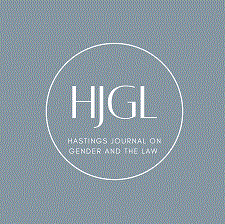
Abstract
The Essay argues that both law and art represent deeply-rooted cultural ambivalences and ethical incoherence towards prostitution. The choice of Picasso's Les Demoiselles d’Avignon as representative of this tension stems from the sui-generis status of the painting in the history of modern art—as an avant-garde which later became a canon. Of the various views evoked by the painting, four are especially prominent: a moralizing, a normalizing, a victimizing and a patheticizing view. The examination of various Western prostitution laws shows that each of the laws simultaneously expresses different perceptions and ideologies about prostitution, much like the views evoked by the painting. It appears that law is unable to avoid the cultural incongruity linked to prostitution, which is apparent even in countries that allegedly declare unambiguous standing towards it.
Recommended Citation
Shulamit Almog and Ariel L. Bendor,
Views on Prostitution,
30 Hastings Women's L.J. 3
(2019).
Available at: https://repository.uclawsf.edu/hwlj/vol30/iss1/3


